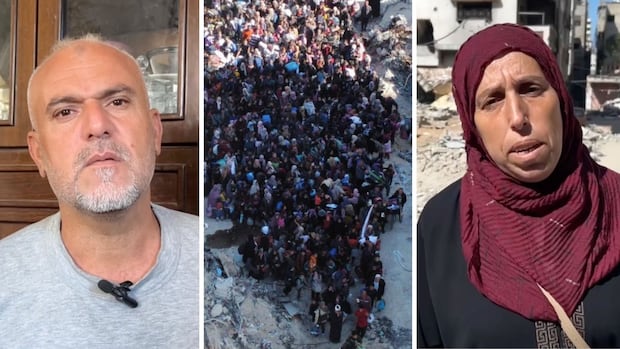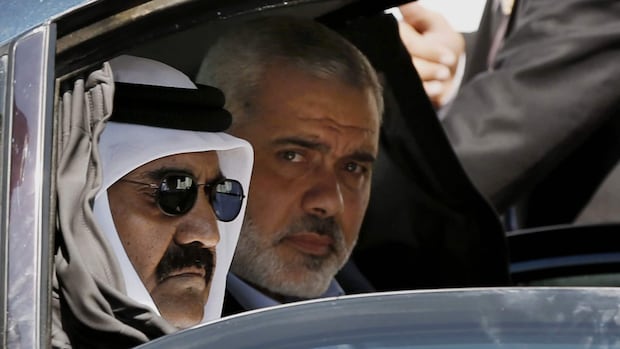Qatar says it has ‘stalled’ Israel-Hamas mediation efforts until sides show ‘seriousness’ for Gaza deal
Qatar has told Palestinian militant group Hamas and Israel it will stall its efforts to mediate a Gaza ceasefire and hostage release deal until they show “willingness and seriousness” to resume talks, its foreign ministry said on Saturday.
The Gulf country has been working alongside the United States and Egypt for months on fruitless talks between the warring sides in Gaza and any disengagement from that process could further complicate efforts to reach a deal.
The Qatari ministry also said news reports about the future of the Hamas political office in Doha were inaccurate but did not provide specific details. On Friday, Reuters quoted a U.S. official saying Washington had asked Qatar to expel the group and that Doha had passed this message on to Hamas.
An official briefed on the matter also said on Saturday Qatar had concluded that, with its mediation efforts paused, Hamas’ political office there “no longer serves its purpose.”
But three Hamas officials, speaking off the record, said the group had not been informed by Qatar that its leaders were no longer welcome in the country.
Qatar has hosted Hamas political leaders since 2012 as part of a deal with the U.S., and the group’s presence there has facilitated the progress of talks.
The war erupted after Hamas-led militants attacked Israel on Oct. 7, 2023, killing some 1,200 people and taking 251 hostages back to Gaza, according to Israeli tallies. Israel’s retaliatory offensives have killed more than 43,300 Palestinians, according to Gaza authorities, and reduced much of Gaza to rubble.
The UN Human Rights Office said on Friday that nearly 70 per cent of fatalities it had verified in Gaza were women and children. Israel’s diplomatic mission in Geneva, where the office is based, said it categorically rejected the report, which it said did not accurately reflect realities on the ground.
“Qatar notified the parties 10 days ago during the last attempts to reach an agreement that it would stall its efforts to mediate between Hamas and Israel if an agreement was not reached in the round,” Qatar’s foreign ministry said.
Recent photos posted on X by the Israel Defence Forces (IDF) show hundreds of displaced civilians lined up together, holding their meagre belongings and filing out of the Jabalia refugee camp, under IDF instruction.
Hear from two people who spoke to a CBC News freelance journalist in Gaza about what it was like to be forced out.
“Qatar will resume those efforts with its partners when the parties show their willingness and seriousness to end the brutal war.”
There was no official response from Hamas or Israel.
The latest round of talks in mid-October failed to produce a deal, with Hamas rejecting a short-term ceasefire proposal. Israel has previously rejected some proposals for longer truces. Disagreements have centred on the long-term future of Hamas and Israel’s presence in Gaza.
Hamas confirmed Friday that its leader, Yahya Sinwar, was killed by Israeli forces in Gaza. The militant group reiterated its stance that hostages taken from Israel a year ago will not be released until there is a ceasefire in Gaza and a withdrawal of Israeli troops.
Washington had told Qatar that Hamas’ presence in Doha was no longer acceptable in the weeks since the group rejected the October proposal, a U.S. official said on Friday.
Qatar has not set a deadline for Hamas’ political office to close or for Hamas leaders to leave Qatar, the official briefed on the matter said.
Qatar’s foreign ministry said the Hamas office had been a channel of communication between the parties in Gaza and said it had contributed to a brief ceasefire and exchange of some hostages a year ago.

The official briefed on the matter pointed to a previous episode in April when Qatar had reconsidered Hamas’ presence in the country, leading some Hamas officials to leave for Turkey.
“After two weeks, the Biden administration and the Israeli government asked Qatar to request their return,” the official said, adding that Washington has said negotiations were ineffective when the Hamas leaders were in Turkey.
Qatar, designated as a major non-NATO ally by Washington, has long sought a role as a link between Western powers and their adversaries in the region.
The state of Qatar has been a key Western ally for years, but it’s also a longtime helper of Hamas. CBC’s Thomas Daigle breaks down how such a tiny nation has such a big role in the Israel-Hamas war.
The country hosts the largest U.S. airbase in the Middle East but also allows Hamas and Afghanistan’s Taliban to operate offices in Doha. It also helped negotiate a prisoner exchange between the U.S. and Iran last year.
It is unclear how many Hamas officials live in Doha, but they include several possible replacements for leader Yahya Sinwar, whom Israeli forces killed in Gaza last month.
They include Sinwar’s deputy Khalil al-Hayya, who has led ceasefire negotiations for the group, and Khaled Meshaal, widely seen as Hamas’ diplomatic face.
The group’s previous leader Ismail Haniyeh, who was assassinated in Iran in July almost certainly by Israel, was also based in Doha. His body was flown to Qatar for burial in early August.




